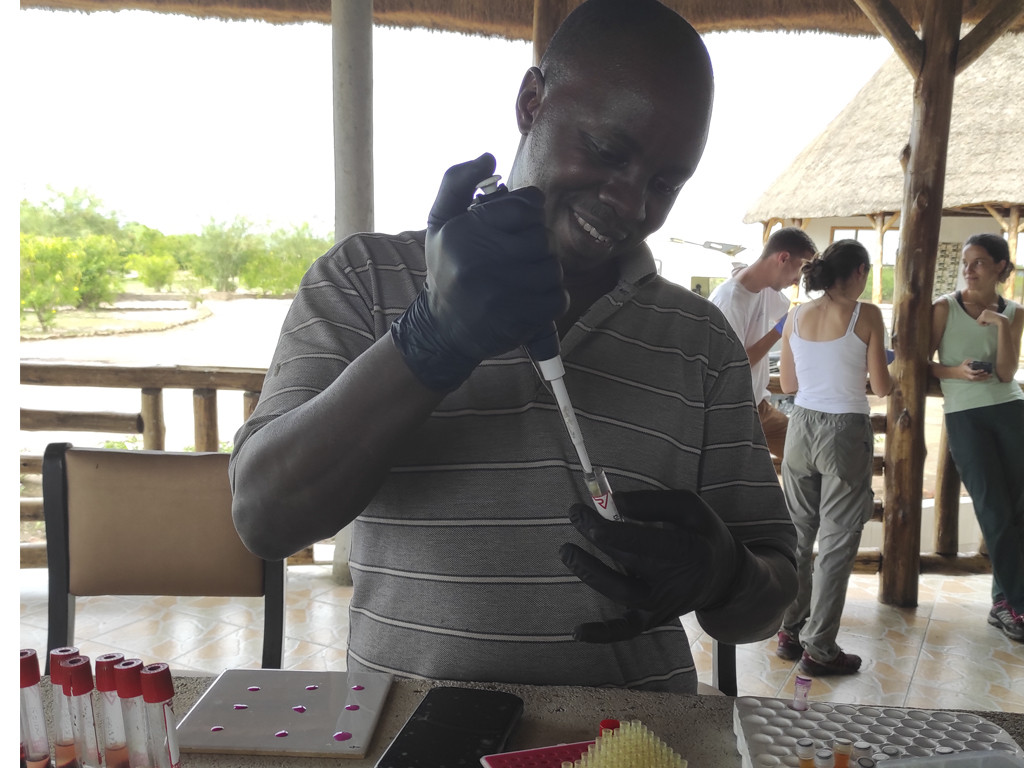Spanish vets help fight brucellosis in Uganda

During November of this year, a mixed team of Ugandan veterinarians, Patrick Kalimbal (Makerere University, Kampala) and the Europeans, jesus wal, Doctor NGO (Andorra), Andrea DiasAnd Jaume Gardella (Autonomous University of Barcelona) and Elena Perez (University Cardinal Herrera, Valencia), participated in Collection and analysis of sheep, goats and cows samples Within the project MUSBCEA (Multi-Sectoral Strategy for the Control of Brucellosis in East Africa), funded by the European Union and the African Union, under the umbrella of LeapAgri (EU-Africa Long-Term Research and Innovation Partnership on Food, Nutrition and Sustainable Agriculture, CONTACT 2017).
During this residency, serum and milk samples were collected from these three types of livestock in Kisoro and Kasese districts in western Uganda.
As much information as possible is collected from each farm: species present, number of animals, breed, GPS location, data regarding the family core, main treatments given, most frequent diseases, etc. Veterinarians focus particularly on reproductive disorders in livestock and on febrile and joint diseases in humans, as they are often confused with symptoms of malaria.
Once in base camp, samples, which have been pre-dried, are analyzed using Rosa Bengal technology. This technology makes it possible to determine the presence of antibodies against brucellosis, a bacterial infection transmitted from animals to humans. Usually, people become infected by eating raw, unpasteurized dairy products. Milk of positive animals is sent to the Central Diagnostic Laboratory at Makerere University College of Veterinary Medicine for further cultivation and isolation. In the case of positive growth, the isolated sample is arranged in Spain.
This project, which is being developed in five Ugandan provinces, It seeks to determine the prevalence of brucellosis in domestic livestock, as well as to identify the types of brucellosis present. in study areas, then develop an eradication strategy based on live vaccines (B19 and Rev1) and the impact on veterinarian training LocationsDoctors from health centers and livestock breeders.
During the 2022 residency, seminars will be held to inform farmers about the seriousness of the disease, how to combat it and how to avoid infection, as most of them eat raw milk.
PhD student Andrea Dias has used her residency to further develop her PhD thesis project on antimicrobial resistance in humans, domestic livestock and wildlife species.

“Coffee fanatic. Gamer. Award-winning zombie lover. Student. Hardcore internet advocate. Twitter guru. Subtly charming bacon nerd. Thinker.”











